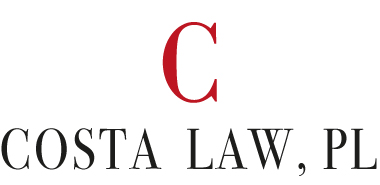Bankruptcy Law 101: Chapter 7 Bankruptcy Explained
If you are in a difficult financial situation and can’t keep up with your bills, it is important to know your options. For many people, declaring bankruptcy will be the best solution to the problem. While there are quite a few different bankruptcy options to consider, Chapter 7 is by far the most popular. Take a moment to read through this post to learn more about Chapter 7 Bankruptcy and how it can help you get back on strong financial footing.
What Is Chapter 7 Bankruptcy?
In simple terms, a Chapter 7 bankruptcy is a “liquidation bankruptcy” where any non-exempt property or assets are sold off in order to cover your debts, and then any remaining debts are discharged in most cases. While this can sound undesirable at first, the reality is that most people don’t lose any significant assets (home, car, retirement accounts, etc) in this process, unless they want to. This is because these types of assets can either be exempted, or they can be reaffirmed during the bankruptcy process.
Who Qualifies for a Chapter 7 Bankruptcy?
Chapter 7 bankruptcies are available to the vast majority of people. They can be used by individuals, married couples, corporations, and partnerships. There is a means test that you must pass, which can eliminate certain high net worth individuals, but even that isn’t always the case. If you are in a challenging financial situation, you will almost certainly be able to qualify when working with an experienced bankruptcy attorney.
Filing Stops the Collection Process
One of the best things about filing for a Chapter 7 bankruptcy is that it will almost immediately stop the collection efforts from your creditors. This means the harassing phone calls, emails, letters, and other efforts will stop. If your creditors continue to contact you, they are breaking the law and can be sued in some cases. This is because rather than collecting directly from you, they will have to work through the bankruptcy court to try to recover any money they are owed.
Working with the Court
Bankruptcy courts will facilitate the majority of this process. You will need to provide them with a detailed list of all your debts, assets, and certain recent financial information. From there, they will work with you and your creditors to determine how much can be paid to the creditors while still leaving you with the ability to meet your day to day obligations. This process can take some time, but once done, your remaining debts (unless you reaffirm them, or they are exempt), will be discharged so you no longer owe the money.
Exempt Debts
It is important to note that not all types of debts can be discharged in a Chapter 7 bankruptcy. Some of the most common types of debt that will remain in place after a bankruptcy include student loans, IRS debt, and spousal or child support debt. In certain cases these debts can be adjusted to make it possible for you to keep up on your payments, but in the end you’ll have to pay the money owed.
Impact to Your Credit
A Chapter 7 bankruptcy will remain on your credit report for 10 years. While this may seem like a long time, it isn’t nearly as bad as many people make it sound. While the bankruptcy is on the report for that long, it becomes less and less influential over time. There are many people who have gone through a Chapter 7 bankruptcy just a few years ago that have excellent credit scores. The important thing is to treat your bankruptcy like a fresh start, and work hard to make wise financial choices moving forward.
Get the Help You NeedA Chapter 7 bankruptcy is a potentially complex legal action that you don’t want to handle on your own. Having an experienced bankruptcy attorney at your side will help ensure you get the best possible outcome to your case. Please contact us to go over your options and get your bankruptcy started right away.





